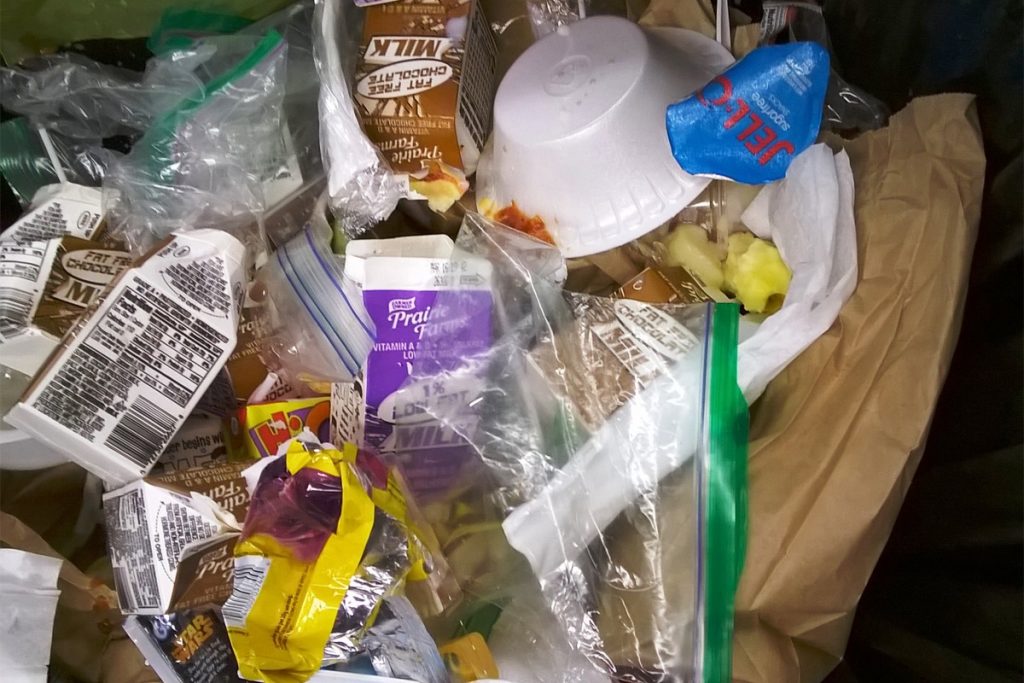A New Bill Aims to Fix Food Waste in Schools
The School Food Recovery Act would establish a grant program for schools to cut cafeteria food waste, impacting both the environment and student nutrition.
The School Food Recovery Act would establish a grant program for schools to cut cafeteria food waste, impacting both the environment and student nutrition.

By Lisa Held for Civil Eats
United States Representative Chellie Pingree (D-Maine) today introduced a new bill that would establish a grant program for schools to cut cafeteria food waste, with the goals of simultaneously reducing environmental impacts and improving student nutrition.
The School Food Recovery Act is co-sponsored by Representatives Dan Newhouse (R-Washington) and Suzanne Bonamici (D-Oregon); Senator Richard Blumenthal (D-Connecticut) will introduce a companion bill in the Senate.
Over the past year, there have been a number of other proposed changes to school food programs, which have ended up stuck in limbo indefinitely, since Congress has so far declined to take up the Child Nutrition Reauthorization process (which is five years overdue). But momentum around reducing food waste across the U.S. food system has been building on both sides of the aisle, and Pingree plans to harness that energy to move this dual-purpose bill forward.
“[Reducing food waste] is bipartisan. Sometimes people will just oppose anything that’s a new program or new spending, but as I like to say, everybody’s grandmother told them not to waste food. It’s one of those ethics we all believe in,” Pingree, a former organic farmer and long-time advocate for progressive food policies, told Civil Eats. “[This bill] would give us the chance to educate a whole new generation about how much food gets wasted and why it isn’t a good thing to participate in.”
In 2018, Pingree and former Congressman David Young (R-Iowa) founded the Congressional Food Recovery Caucus. Rep. Newhouse became the Republican co-chair in 2019. In April 2019, the Trump administration also announced the Winning on Reducing Food Waste Initiative, a collaboration between the United States Department of Agriculture (USDA), Environmental Protection Agency (EPA), and Food and Drug Administration (FDA), aimed at educating and developing food waste solutions. …
Cecily Upton, co-founder and senior vice president of FoodCorps, said that giving schools and food service professionals freedom to come up with their own solutions is often a more effective strategy than prescribing a one-size-fits-all solution. “They know what they need,” she said. “These kinds of programs that offer more expansive opportunities for schools to name the things that will work for them in addressing these problems are going to be more appealing.”
Upton added that she had confidence the USDA rulemaking process would provide more structured guidance for schools that did need it, and that, based on FoodCorps’ experience, emphasizing the educational component would be key.
“Our own evaluation at FoodCorps has shown that when you have really robust, hands-on food education, kids eat three times as many fruits and vegetables at lunch than they do otherwise,” she explained. “We do a lot of taste testing. What I loved about the Pingree bill is that while focused on food waste, it incorporates experiential education for kids around food.”

Senate Passes Harmful SNAP Changes After Workaround

FoodCorps’ Statement on House Vote to Cut SNAP Funding

FoodCorps Announces Rachel Willis, Longtime Educator and Board Member, As President